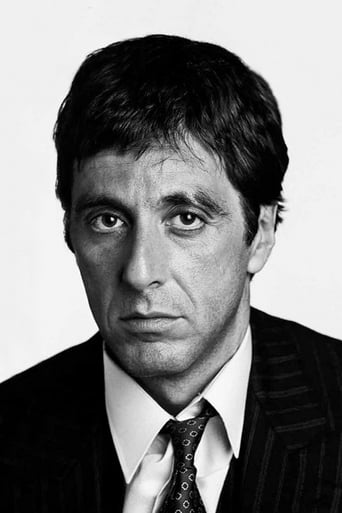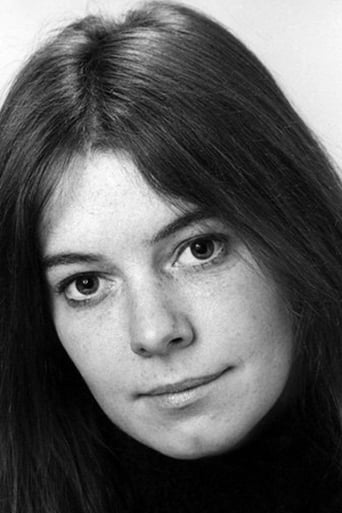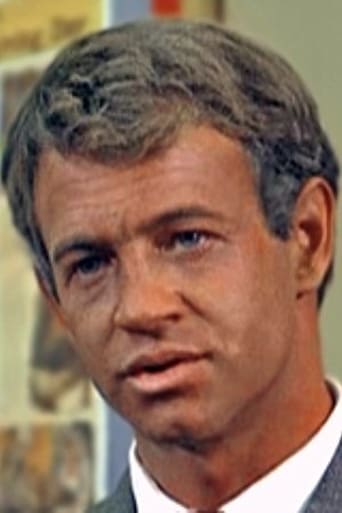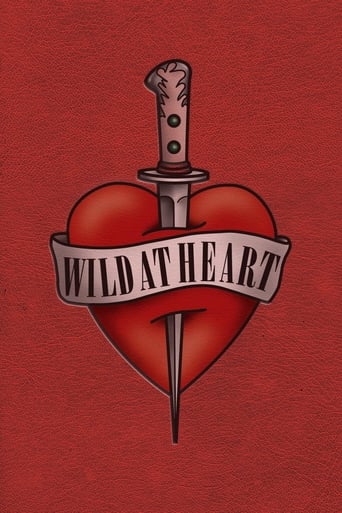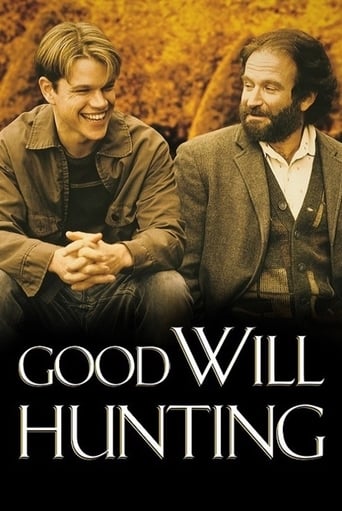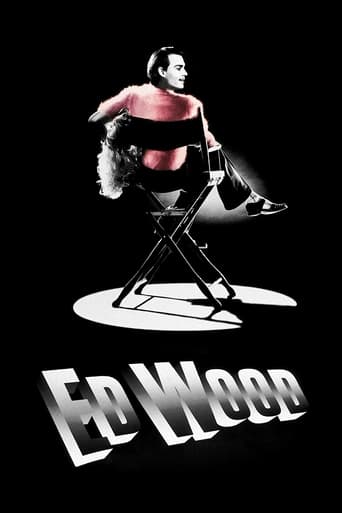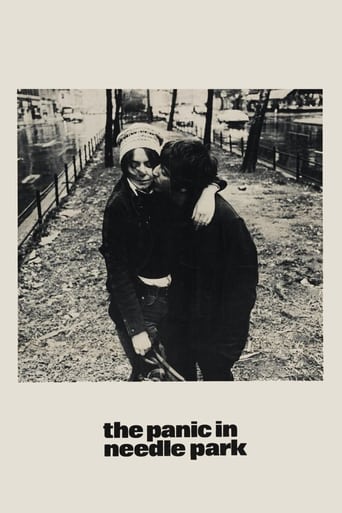
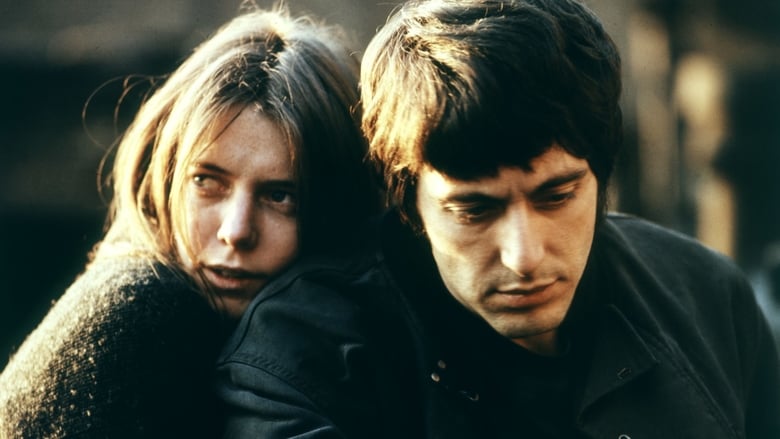
The Panic in Needle Park (1971)
A stark portrayal of life among a group of heroin addicts who hang out in Needle Park in New York City. Played against this setting is a low-key love story between Bobby, a young addict and small-time hustler, and Helen, a homeless girl who finds in her relationship with Bobby the stability she craves.
Watch Trailer
Cast
Similar titles
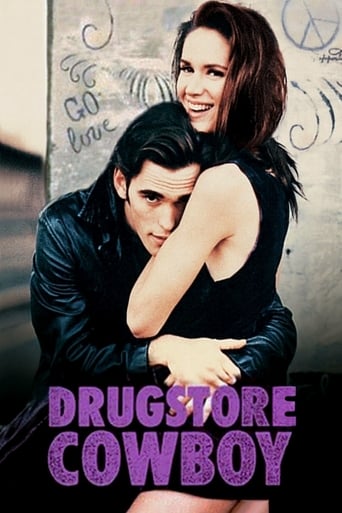
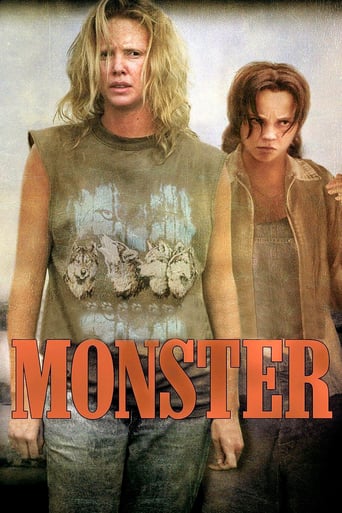


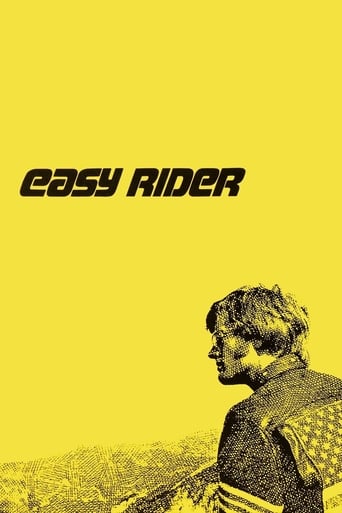
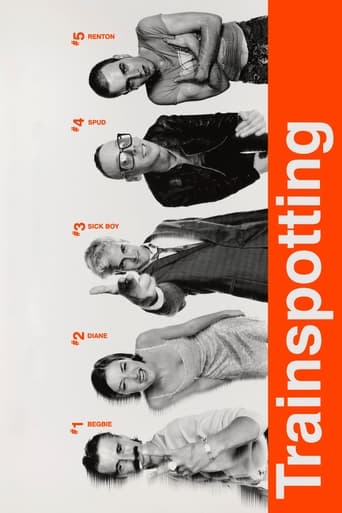
Reviews
If you don't like this, we can't be friends.
Although it has its amusing moments, in eneral the plot does not convince.
There are moments in this movie where the great movie it could've been peek out... They're fleeting, here, but they're worth savoring, and they happen often enough to make it worth your while.
Actress is magnificent and exudes a hypnotic screen presence in this affecting drama.
I've heard people talk about New York City as if it were the greatest place on Earth. Woody Allen has made films that portray the city as the most attractive location there is. And yet my memories of the city from various TV series and films never lends itself to a location I'd want to visit or spend time in. It was movies like this one that did little to endear the city to those who've never been there and probably did damage to the tourist trade there.In his first lead role in a major motion picture Al Pacino stars as Bobby, a low level thief and junkie who lives day by day on the streets of New York. He meets Helen (Kitty Winn) through a mutual friend and artist named Marco (Raul Julia), Helen's now ex-boyfriend who's about to leave the country for a while. This leaves Helen homeless with no friends to turn to. Except that Bobby takes a liking to her and invites her to stay with him.But Bobby is a full on junkie, stealing in order to get a fix, get high and tune out. His is a world of fellow junkies who bond together in one apartment or another until they can no longer pay the rent since the money goes towards feeding their addiction.Eventually Helen wants to know what it's like and shoots up as well. At first upset by the situation Bobby eventually finds that it bonds the two of them closer together. Both promise to kick the habit but those days never come. Instead they live a life that takes them to the lowest of lows. Worse yet is that the city is dry at the moment with drugs shipments cut off after a number of arrests, thus the title of the film, a panic that drugs are nowhere to be found.The movie follows the pair's lives as they continue to go lower and lower, occasionally trying to claw their way up but then failing miserably. The tragedy of their lives should have made this movie one to show teens who might consider drug use. It is a sad world they live in due to their addictions. And New York City has never looked as filthy or degraded as in this film.The story itself is only slightly interesting as somber and dark as it is. What most will want to see this film for is to watch the young Pacino elevating what could have been a low budgeted film role into something more. It would be just a year later that he would break out in THE GODFATHER but hints of what was to come can be seen here.Twilight Time presents the film as always in the best print possible. Extras are plentiful this time around and include an isolated score track featuring unused music composed and conducted by Ned Rorem, a featurette called PANIC IN THE STREETS OF NEW YORK, a featurette called WRITERS IN NEEDLE PARK, Notes on Ned Rorem's unused score and the original theatrical trailer. As always copies are limited to just 3,000 so pick one up if you're interested.
The dire content of 'The Panic...' is groundbreaking. Al Pacino is great as a street urchin in this early role, a precursor to his 'Dog Day Afternoon' performance. In this one, he's just as passionate and intuitive, but the script hinders the effect. Kitty Winn has an old-time-y feel, like she was meant to stay in the 70's, and film-wise, she kind of did as this and 'The Exorcist' are her most famous roles. She was solid here though. Instead of a clear plot, this movie's more impressionistic with it's storytelling, revealing more brushstrokes as it moves along, and I can appreciate that.The weak links were the dialogue, which was lame at times, like with Pacino's movie brother's line about, "He Ain't Heavy, He's My Brother" being particularly offensive on the lame-o-meter. Then some of the addicts spouted a few too many buzzwords, though the way they only had drugs, sex, or crime on their minds did ring true in my experience. The actor who played Hotch was expressionless the entire film. He was a pile of tapioca pudding warbling around, and he brought the energy down with him whenever he came on-screen. I understand that acting, especially in grittier, 'street-life' films, is meant to be naturalistic, but he was boring, which I can understand as I've fallen into that trap too: "Am I being too theatrical and demonstrative?" No, you're really not, Hotch.
Episodic and sad, The Panic in Needle Park as a pitiful slice-of-life character study stands out amongst the other drug films of the 70s in its nuanced unfolding narrative of two hapless New York addicts and their ability to survive and stick together under the weight of Police tensions and their own faults.The excellent Kitty Winn is outstanding in the role of the sensitive artist Helen, who falls in love with Al Pacino's drug-addicted, petty criminal Bobby. Winn won the award at Cannes that year for her performance, and looking today, it's still as edgy as it was back in 1971. Pacino pretty much over-plays his part as the antagonist, and functions to support Winn's presence in the film.Joan Didion and John Gregory Dunne based their script for the film on James Mills's reportage that was based on a photo spread about a drug-addicted couple that spent their days in Needle Park between pilfering and hustling for their next fix. The films gritty subject matter never sinks to the scatological, but rather, in the prose of Didion, and Dunne retains an elegiac sense.Director Jerry Schatzberg never allows the truth of images to become fuzzy, sticking to a clear documentary-like capturing of action. The camera lingers on characters injecting heroin after preparing the drug, and the images could function as a how-to video in some instances. The complete absence of any music track to indicate to the viewer what they should feel allows a deep sense of truth to burn through the screen.This is the film that Francis Ford Coppola showed to Paramount to convince them that Al Pacino was suitable for the role of Michael Corleone in The Godfather. And in retrospect we can see that Pacino possesses a strength that is core to his persona, and certainly something that Coppola relied on to carry the central character of his film.This is not Pacino's best performance but his overbearing screen presence counters Winn's subtle nuanced creation of a woman eroding into human detritus. The film also captures much of the spirit of New York of the early 1970s, when the use of drugs was a relatively unsophisticated activity, very different from much of the condoned abuse that is tolerated today.Watch this film for excellent examples of film performances, and techniques that really don't exist anymore with the present crop of performers coming out of the acting schools. Winn retired too early after Panic brought her accolades, and Pacino continues to work on stage and in film, as his is the kind of acting that can be consider the finest of the period.
Solid film about sordid lives: a dope dealer on New York's West Side, in and out of prison over the years for various crimes, and his girlfriend, a would-be artist. Together they shoot heroin until their money runs out, whereupon the girl turns to hooking and pushing pills while he runs drugs for a major coke dealer in Harlem. Director Jerry Schatzberg (aided by his cinematographer, Adam Holender) creates a vivid netherworld of addicts-on-the-edge, their roller-coaster highs and lows, their desperation over when and where they'll get their next fix. Adapted from James Mills' book by Joan Didion and John Gregory Dunne, the dialogue (as performed by leads Al Pacino and Kitty Winn) has the honest ring of truth; as these grubby lives spiral further downward, in fact, we get very little melodrama--almost as if there's indifference in the low-life romance. Film features several hard-hitting scenes, however all the quick cutting near the finish results in a formulaic turn of events. **1/2 from ****
